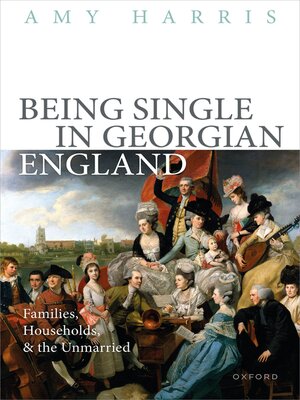
Sign up to save your library
With an OverDrive account, you can save your favorite libraries for at-a-glance information about availability. Find out more about OverDrive accounts.
Find this title in Libby, the library reading app by OverDrive.



Search for a digital library with this title
Title found at these libraries:
| Loading... |
Being Single in Georgian England is the first book-length exploration of what family life looked like, and how it was experienced, when viewed from the perspective of unmarried and childless family members. Using a micro-historical approach, Amy Harris covers three generations of the famous musical and abolitionist Sharp family. The abundance of records the Sharps produced and preserved reveals how single family members influenced the household economy,
marital decisions, childrearing practices, and conceptions about lineage and genealogy. The Sharps' exceptional closeness and good humor consistently shines through as their experiences reveal how eighteenth-century families navigated gender and age hierarchies, marital choices, and household governance. The
importance of childhood relationships and the life-long nature of siblinghood stand out as central aspects of Sharp family life, no matter their marital status. Along the way, Being Single explores humor, music, religious practice and belief, death and mourning, infertility, disability, slavery, abolition, philanthropy, and family memory. The Sharps' experiences uncover how important lateral kin like siblings and cousins were to marital and household decisions. The analysis also reveals additional layers of Georgian family life, including: single sociability not centered on courtship; the importance of aunting and uncling on their own terms; the ways charitable acts and philanthropic endeavors could serve as outlets or partial replacements for parenthood; and how genealogical practices could be tied to values and identity
instead of to biological descendants' possession of property. Ultimately, the Sharp siblings' remarkable lives and the single family members' efforts to preserve a record of those lives, show the enduring contribution of unmarried people to family relationships and household dynamics.






